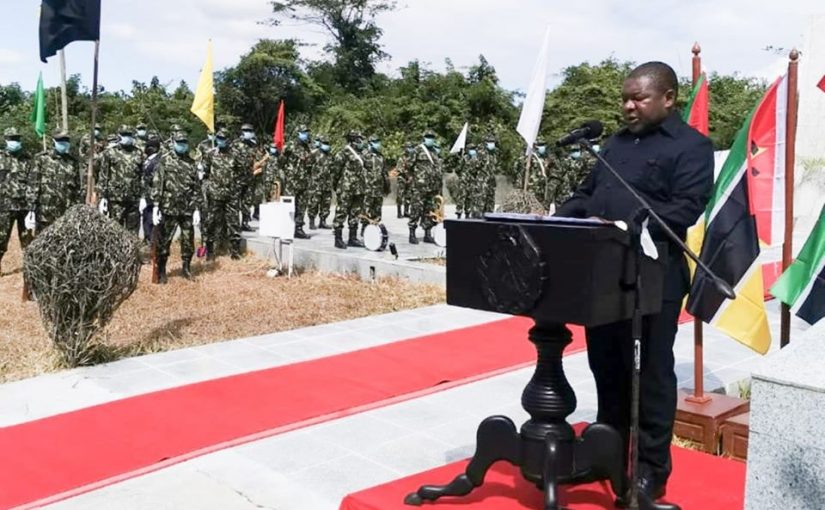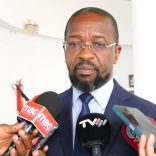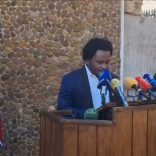Mozambique: Perpetrators of new attacks are 'bandits' and not 'Naparamas' - Watch
Mozambique: President demands firmness against “terrorists” in the north

Photo: Miramar
Mozambican President Filipe Nyusi said today that the country “will never resign itself” to the “terrorist attacks” in the north of the country, pointing to resistance to colonialism as an inspiration for the fight against current challenges.
Speaking on the occasion of the 60th anniversary of the Mueda massacre, a landmark moment in the anti-colonial struggle, Filipe Nyusi emphasised the determination in the fight against armed groups.
“Mozambicans will never resign themselves,.We will continue to fight in defence of our interests, and we will continue to fight against all kinds of divisionism and aggression,” Nyusi said in Mueda, Cabo Delgado province.
The country will also oppose the plundering of its natural resources, he said
The Mozambican head of state pointed out that armed violence in the north, of the country, more specifically in the province of Cabo Delgado, and also in the central region, has not prevented the state from maintaining the country’s independence and sovereignty.
“Mozambique remains independent and sovereign, despite the terrorist attacks in this province of Cabo Delgado and in the centre,” he stressed.
The violence, he recalled, includes the killing of civilians and destruction of social and economic infrastructure.
Referring to the 1960 Mueda massacre, which according to official sources involved the deaths of some 600 civilians at the hands of Portuguese colonial forces, Nyusi said that the event catalysed the determination of the Mozambican people to fight for independence.
“More than an act of humiliation, the Mueda massacre brought to the surface the inhuman character of colonialism and became a catalyst for the fight against colonialism,” the Mozambican president said.
On 16 June 1960, Portuguese forces opened fire on hundreds of people who had gathered in the main village in Mueda for a meeting with colonial administrators on the injustices and repression of the colonial system.
The massacre drew international condemnation and deepened the isolation of the Portuguese colonial regime, paving the way for the beginning, four years later, of the armed struggle to achieve Mozambique’s independence, finally declared on June 25, 1975.
Cabo Delgado, the Mozambican province where work on Africa’s largest private investment – for the exploitation of natural gas – continues, has been under attack by insurgents since October 2017, with at least 600 dead and 200,000 forced to take refuge elsewhere.
In central Mozambique, since August last year, armed attacks by guerrillas believed to be dissident members of the armed wing of the Mozambican National Resistance (Renamo), the country’s main opposition party, have targeted security forces and civilians in villages and on some stretches of highway. More than 20 people have been killed and several others injured, in addition to a number of vehicles having been destroyed.













Leave a Reply
Be the First to Comment!
You must be logged in to post a comment.
You must be logged in to post a comment.